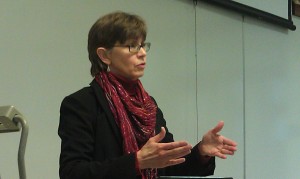UNDERGRADUATE THEOLOGY, RELIGIOUS STUDIES, & PHILOSOPHY CURRENT AND PAST COURSES:
Critical Thinking in Ethics (Introduction to Philosophy): Classroom and Online Courses
This introductory philosophy course is designed to teach basic critical thinking skills through an overview of philosophical processes and systems that shape different approaches to solving ethical problems. This integration requires learning some of the fundamental philosophical contexts that structure these processes, as well as learning about their practical interpretations and applications in literature, media and the arts, and in contemporary events, including those “ordinary” ones found in daily life. Learning to think logically and communicate reasonably about ethical issues and problems is the ultimate goal of this course. This course aims at teaching students to be able to 1) identify, formulate and evaluate arguments, 2) identify the nature of ethics and how ethics impacts and is impacted by religion and human intuition, 3) construct a logically correct ethical argument and 4) identify the details of several contemporary moral controversies. This course is a prerequisite for all courses in philosophy.
World Religions
Studying religion—especially those traditions we are unacquainted with—not only informs us about those religions, but opens up new ways of understanding the world, offering us strong skills for practicing our own religion and spirituality at a deeper level. In this class, we will have the opportunity to study, share, and discuss some of the most important questions human beings ever ask with colleagues, peers, and friends, guided by an experienced teacher. The course only begins a lifelong process, teaching you how to discover and use wisdom, something of priceless worth for yourself, your communities, and the world. This course studies the five major religions of the world with an emphasis on how those faith groups answer the following questions: What is the nature of God? What is the nature of humankind? What is the fundamental problem facing humanity? How is this problem of life overcome? What is gained by overcoming the problem? The course will use phenomenological, comparative religion and philosophy of religion approaches as its bases for answering these questions. The course will also look at other approaches to the study of religious ritual, practice and tradition.
Christian Marriage and Family: Classroom and Online Courses
This course explores the theological meaning of marriage in the Christian tradition as reflected in its development through history and theological discourse, as well as in the common practice and experience of ordinary Christian people. Thus, the theologically reflective process we will be engaging will not only provide the theoretical foundations for understanding multiple perspectives on marriage today, but will also use insights gained from that knowledge to more fully equip us for our own lives and relationships, regardless of our particular vocational calling. The broadly ecumenical dimensions of Christian marriage considered in this course, while grounded in the Roman Catholic tradition, will be applicable to those of all denominations, as well as of interest to the non-Christian student as well.
History of Christianity
This course is a survey of the extensive twenty centuries of Christian history, beginning with its Jewish background of the first century C.E. to its current expansion as a diverse, global religion. Within such a sweeping panorama, the class will focus on the thematic flow of historical and theological events that have formed – and been formed by – Christianity’s presence in the world. Listed as both a religious studies and a history course, significant reading, lecture, and class discussions will provide a plentiful background for understanding the Christian church of today in its historical context. Christianity is a multi-faceted, ecumenical religion. While taught from a Roman Catholic base, this course will honor and thoughtfully consider the perspectives of the Eastern and Protestant experience as well. The textbooks and additional readings utilized will provide ecumenical depth to the study of the Christian tradition as it has been shaped over two millennia.
Gospel Morality (Christian Moral Theology)
This study focuses on personal and communal moral ideals presented in the New Testament and contemporary social reality which contradicts those ideals. It also considers proposals for transforming the present situation into a closer approximation of the Christian vision of a new person in a new society. Christian morality is often thought of in terms of “do’s and don’ts,” of laws and regulations meant to guide human behavior. However, the Second Vatican Council encouraged a renewal of a more adequate and meaningful moral theology through a return to its Scriptural and Christocentric basis. Rather than external rules imposed upon a Christian, Gospel-based morality is a matter of an interior conversion of heart accompanied by authentic and fruitful action. Through the exploration of narrative, personal experience, and theological reflection, this course will examine contemporary Christian moral life through discussion of its origin in Jesus the Christ, its basis in the New Testament, and its foundation in human freedom for virtue and excellence.
Theology and the Body
What is the meaning of the human body in Christianity? What role do our bodies play in our understanding of God, the church, and ourselves? This course will explore various interpretations of the body throughout the Christian tradition past and present, from sources in the Hebrew Scriptures to the thought of Pope John Paul II and beyond. Contemporary concerns regarding gender, sexuality, and embodiment will be considered in the context of Christian thought and practice.
